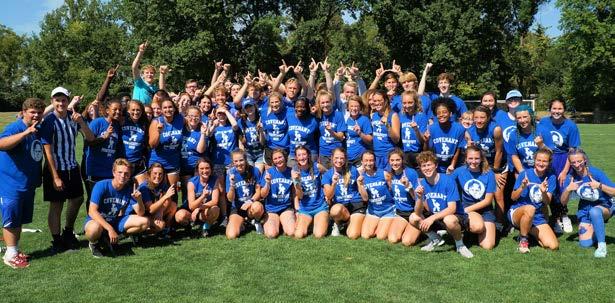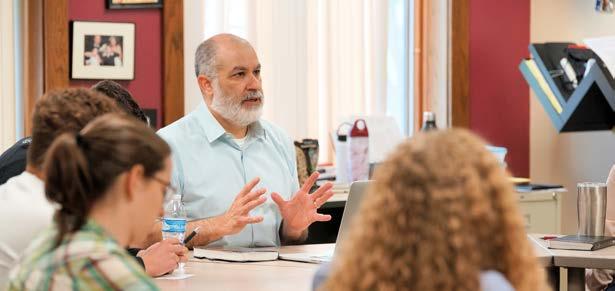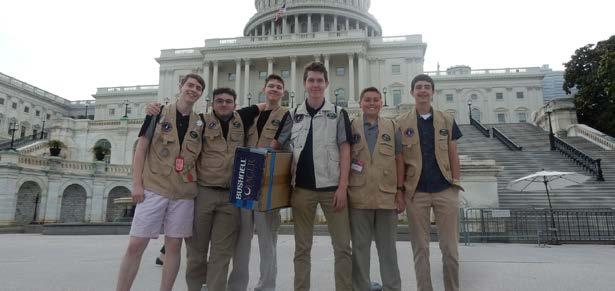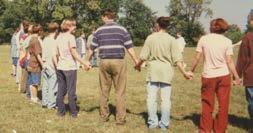David Trujillo, the Covenant 100 lead organizer, discusses worldview with students.
Foundational Prose
// ONE HUNDRED IMPORTANT READINGS TO FOSTER VITAL CONVERSATIONS
As you enter Covenant Christian High School, turn right and walk a bit around the commons railing, then go right once more through the double-doors of the library; once inside you’ll find a handmade bookshelf set apart from the rest housing a collection of works. This is the Covenant 100, a set of books that humbly attempts to be a complete compilation of the essential works that speak to the formation of a Christian worldview. It is a congregation of continually critiqued books that attempts to exemplify the best collection of works to aid its readers in answering all of the important questions of the Christian life. Academic Dean David Trujillo recalls the Covenant 100 starting as an initiative for the whole school to commit to in-depth worldview education. Former Principal and CEO Bryan Hudson put the task to a few teachers to hunker down and develop a refined worldview curriculum for Covenant students. Starting with Joseph Campbell’s Eight Issues of Man, Trujillo extensively researched different spiritual, anthropological, and pastoral perspectives on the essential questions that must be answered for a full life with God. “A good worldview is founded on Scripture, but we realized we needed to receive and draw upon strong Christian voices from throughout the centuries and across the globe; we humbly pursued to create a list of what are the most important texts that answer the most important questions in developing a worldview,” said Trujillo. The list of eight issues expanded a bit and became Life’s Universal Questions, a framework that still informs many pedagogical methods in the humanities at Covenant. Organized under 12 broad categories, these 15 questions would be the basis for Covenant’s worldview curriculum, especially, but not exclusively, in the capstone Senior Worldview class. As the set of questions solidified and students embarked on academic and formational quests to answer them, Trujillo continually found himself gathering resources for students as they developed questions about classroom discussions and composed complex worldview papers and presentations. Trujillo said, “I was asking students to investigate answers for those questions, using Scripture and Christian mentors like C.S. Lewis, and I found they needed a lot of help in where to get started, so to maximize their time and research I created a starting bibliography. It was a place to start, but it became clear that gathering library materials was essential.”
7




